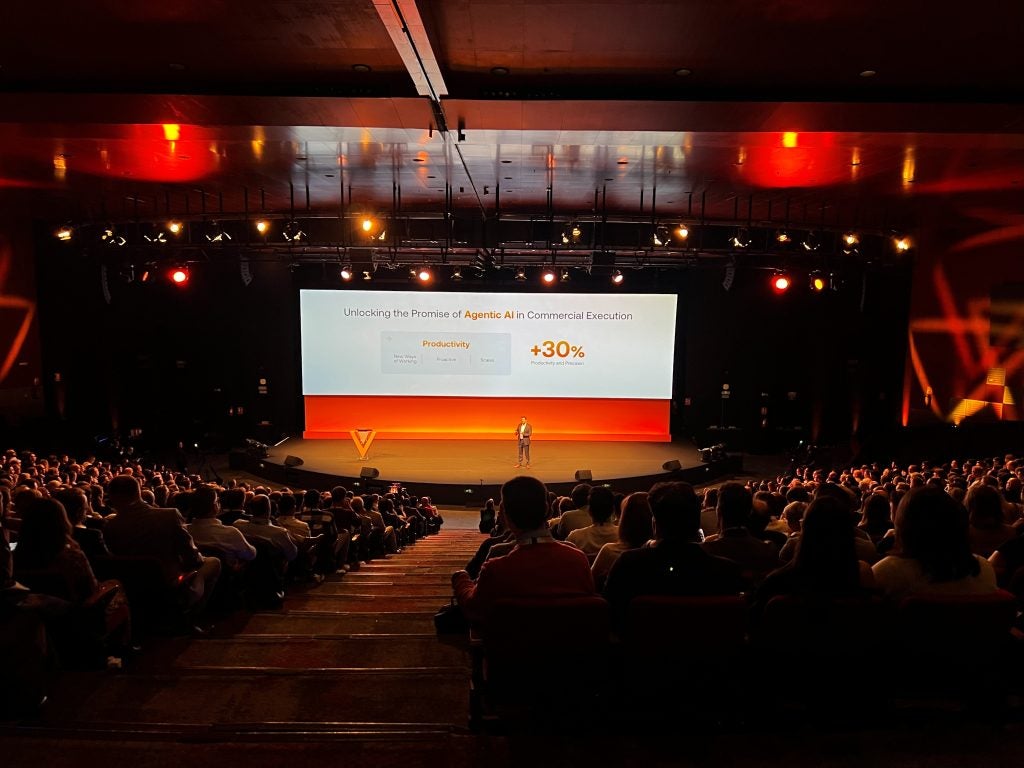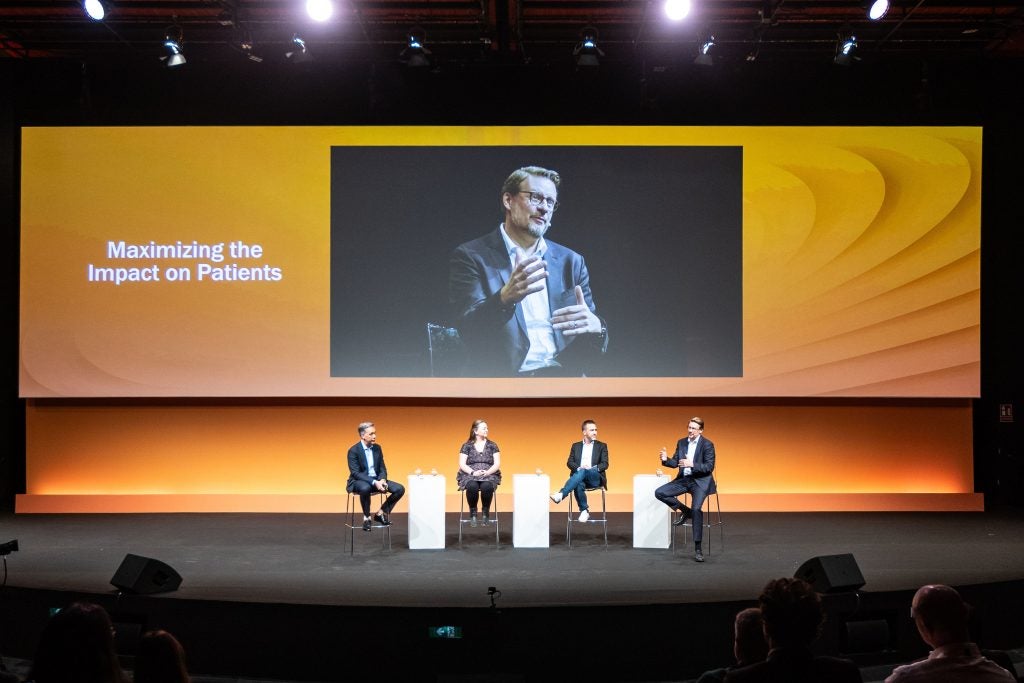
At the 2025 Veeva Commercial Summit Europe, AI and its role in pharma and the wider life sciences industry was the topic on everybody’s lips.
During the conference, executives gathered to discuss the latest developments in the evolving AI landscape – including professionals from across the pharma commercial, digital and marketing landscapes.

Discover B2B Marketing That Performs
Combine business intelligence and editorial excellence to reach engaged professionals across 36 leading media platforms.
Attendees and speakers expressed their excitement for the uptake and evolution of AI on both the short-term and long-term scale.
Since its swift rise to notoriety, AI’s complexity and potential has rapidly expanded, resulting in companies from every corner of the life sciences industry implementing the technology into their workflow to drive efficiency.
However, as AI becomes a mainstay tool, speakers at the Veeva summit stressed that decision-makers must figure out the best use cases for the technology on a day-to-day basis. They were also sure to acknowledge AI’s current pitfalls, which became an important talking point as industry members look to ensure trust, accuracy and future-proofing are at the forefront of the AI revolution.
Agentic AI as a commercial companion
While AI has made its way into the operations of almost every business in the pharma industry, the technology is constantly evolving – meaning it can take many forms within a company’s daily workflow.

US Tariffs are shifting - will you react or anticipate?
Don’t let policy changes catch you off guard. Stay proactive with real-time data and expert analysis.
By GlobalDataThe latest form to catch the eye of the sector is agentic AI. The novel technology has been causing quite the stir as of late, due to its capacity to autonomously carry out tasks without the need for human intervention.
In conversation with Pharmaceutical Technology, Stefan Schmidt, digital capability lead of field engagement at Bayer, noted that in the coming years, agentic AI will likely reduce manual workload for administrative tasks that currently still have to be conducted by a staff member.
However, Schmidt stated that Bayer is “not quite there,” with agentic AI – meaning he is looking to follow the AI adoption journey in steps.
“I would like to focus on augmented AI before moving on to agentic, as giving autonomy to this technology really requires full trust in it,” he said.
To get the most out of agentic AI in a life sciences context, Philipp Luik, VP of European commercial strategy at Veeva, noted that the technology must be “deeply embedded” into the day-to-day workflow in a keynote session from the first day.
According to Luik, this means that layering AI workflows is no longer sufficient, and that technology must be integrated comprehensively into everyday activities. He also stated that AI systems should be future-proofed to keep up with the exponential evolution the technology is experiencing.
He commented: “As we enter the next wave of AI, the industry’s focus must change to achieve vertical per cent productivity gains.”

The importance of great data
Though tools such as agentic AI could have the capacity to transform the pharma landscape, a prominent lesson from this year’s summit was that a worker is only as good as his tools.
Throughout the two-day event, a plethora of life science experts discussed the critical importance of high-quality data, noting that this factor can be the difference between success or failure in a company’s AI strategy.
Speaking with Pharmaceutical Technology, David Medina Tato, VP of Link Strategy at Veeva Systems, said there are five pillars to great data.
He stated: “Whatever you put in will equate to the value you get out. Therefore, high quality, accurate, complete, reliable and compliant data will see an AI model generate the best results.”
He also touted the benefits of ensuring checks and balances within systems are compliant, while making sure that they have the “right level of protection that’s demanded upon the life sciences industry”.

Trust and education a key component to AI success
Despite the ballooning interest in AI and its applications within life sciences, some remain sceptical about its benefits and use cases. This has also impacted the uptake and value that some companies get from the technology, according to John Oxley, Veeva’s practice manager for content business consulting.
“Some of the common challenges clients share with us centre around unfocused pilots or product development. We also hear that AI models may not be living up to expectations, or that they are too complex,” Oxley said in a panel discussion from the first day of the conference.
According to Oxley, all these factors can lead to poor adoption and little value gained from implementing the technology.
However, Moderna’s global marketing operations director, Jason Benagh, noted that this is not the case for Moderna, which he claims has always been a “digital-first company” since its recent inception.
While this has eased the pressure of implementing AI for Moderna, the company has taken other steps to get its staff on board with the technology. “We established an AI academy, where all employees go and take a full-day course on the technology and how to use it,” Benagh said.
In conversation with Pharmaceutical Technology, Karl Goossens, general manager of OpenData Europe at Veeva Systems, voiced his agreement with Moderna’s approach.
“Companies not only need to explain how to use AI to their staff, but they also need to show them how it’s going to help them, as well as the role the technology will play in their day-to-day work life,” he said.
Alongside the need for AI-related training opportunities, Chris Moore, President of Europe at Veeva Systems, stressed that trust in AI is critical to ensure that the technology reaches its full potential.
Benagh echoed Moore’s sentiment, noting that reviewers at Moderna need to fully believe in an AI’s capabilities for the tech to reach its full potential.
Benagh said: “It’s important to have the trust of reviewers [when implementing AI], as they need to be comfortable with what’s coming out.
“In the US and other countries, the reviewer is the one who puts their name on the documents that go to health authorities, so they have to be comfortable with what an AI product is producing.”
While AI has already had a significant impact on the pharma industry, the key message of the 2025 Veeva Commercial Summit was that with responsible usage and great data, AI could revolutionise the operational efficiency of the life sciences sector.




